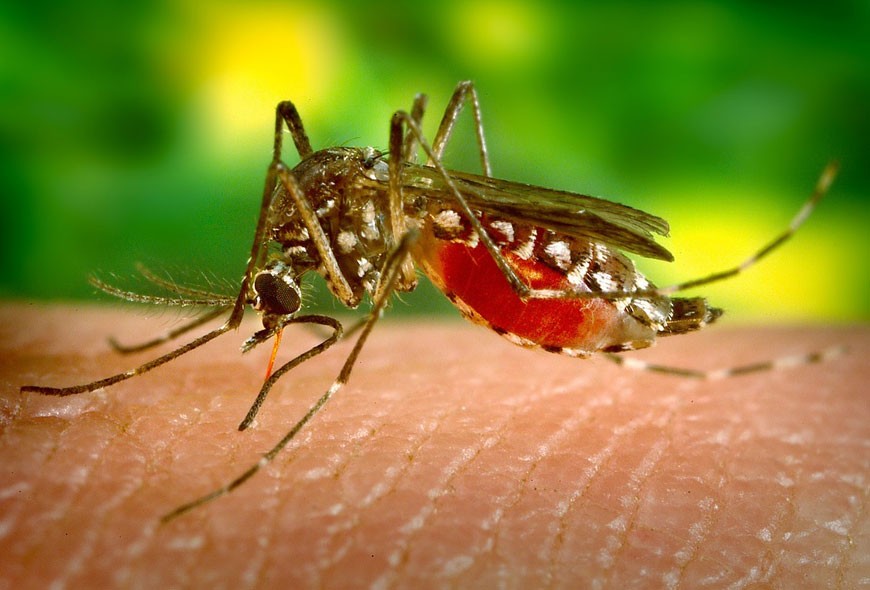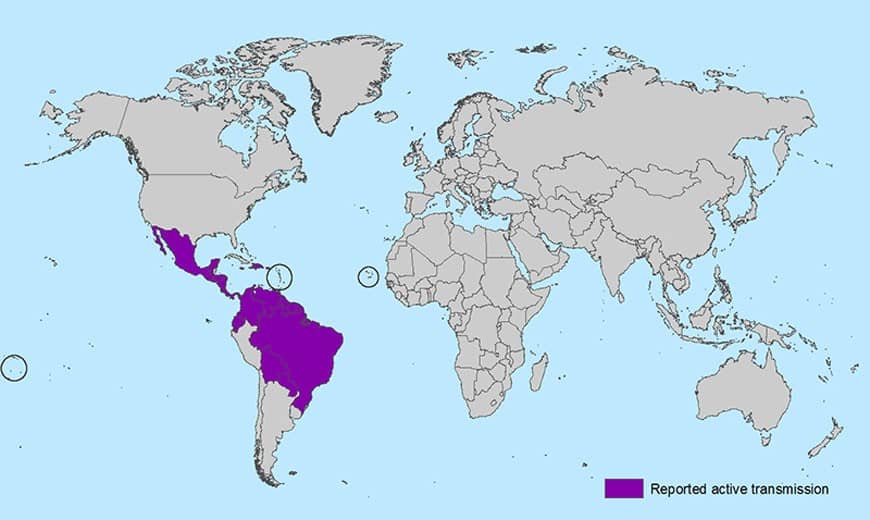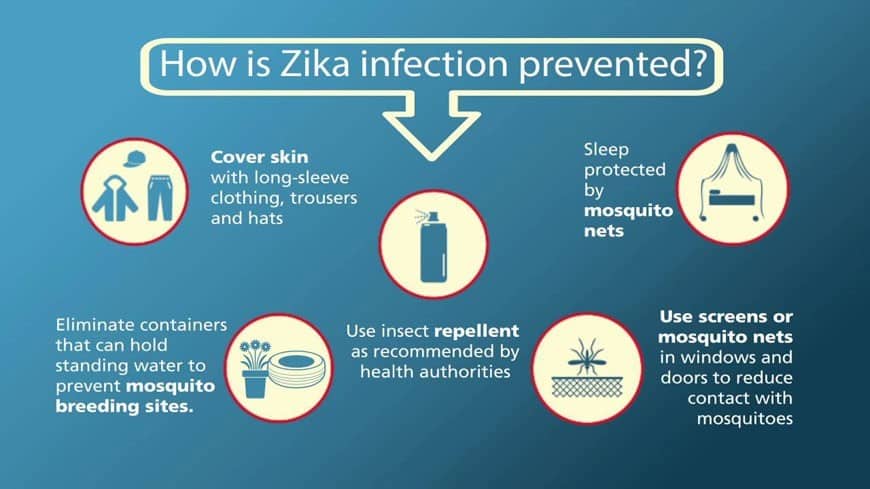Medical Alert: The Zika Virus and Pregnancy
In the past year, the Zika Virus has exploded across Central and South American and the Caribbean. This mosquito-borne virus has been blamed for numerous cases of microcephaly (unusually small head) in babies born to women who were infected with the virus during pregnancy. The virus is also being blamed for miscarriages among infected women.
If you’re pregnant or planning to get pregnant, how does this affect you? What precautions should you take? What if you’re pregnant and you’ve been exposed?
What We Know about Zika
For most people in the United States, the Zika virus isn’t a major concern, even in areas where it has recently appeared. The virus is transmitted by the bite of an infected Aedes aegypti mosquito. This species is widespread in tropical and semitropical areas, but it’s not that common in the US. Small numbers are found in parts of Texas and Florida. So far, about 50 cases of Zika have been confirmed in the US, all in people who recently traveled outside the country to Zika-infected areas.
If you do get bitten by an infected mosquito and catch Zika, chances are you won’t even notice. About 80 percent of the people who get Zika have no symptoms. Those who do get it almost always have a mild illness with fatigue, body aches, a mild skin rash, and conjunctivitis (red eyes). They get better in a few days to a week. In rare cases, people who get Zika may develop Guillain-Barré syndrome, a type of temporary paralysis that usually goes away without an permanent damage. Death from Zika is extremely rare.
There’s an additional risk for pregnant women: Zika can apparently be sexually transmitted by an infected man. The transmission doesn’t seem to go the other way—an infected woman probably can’t transmit the disease sexually to a male partner.
What We Don’t Know About Zika

How soon a problem with the fetus can be seen on ultrasound isn’t known. Although researchers have evidence that Zika infection can lead to miscarriage, right now they don’t know much more than that. How high the risk of miscarriage is remains unknown. Researchers also don’t know when during pregnancy infection is most dangerous.
What To Do about the Zika Virus?
Given all the unknowns and risks of Zika infection for a pregnant woman, the World Health Organization has issued precautionary measures for pregnant women and women considering pregnancy. WHO says, “Women who are pregnant should discuss their travel plans with their health care provider and consider delaying travel to any area where locally acquired Zika infection is occurring.”
The Centers for Disease Control and Prevention (CDC) has issued a travel advisory that warns about travel to areas where infection is possible, including the Caribbean. They recommend that travelers to the Caribbean, Central America, and South America protect themselves from mosquito bites. (Insect repellents containg DEET are safe for pregnant women.) The advisory also has specific advice for women who are pregnant in any trimester:
- Consider postponing travel to any area where Zika virus transmission is ongoing.
- If you must travel to one of these areas, talk to your doctor first and strictly follow steps to prevent mosquito bites during your trip.
- If you have a male partner who lives in or has traveled to an area where Zika transmission is ongoing, either abstain from sex or use condoms consistently and correctly for the duration of your pregnancy.
What if you’re pregnant and you’ve returned from a Zika virus risk area? The American College of Obstetricians and Gynecologist (ACOG), in conjunction with the Society for Maternal-Fetal Medicine, has issued a joint practice guideline for doctors. They say “Antibody testing for Zika virus is now recommended for all pregnant women who have traveled to an affected area regardless of the presence of clinical illness.” In other words, if you’re pregnant and you’ve been in a place where Zika infection is a possibility, get tested for it right away, even if you feel fine. You may still be infected and there may still be a risk to your unborn baby.
Based on what we know now, women who are planning to get pregnant and have recently traveled to Zika virus risk areas should wait at least a month before trying for a baby. That would give the virus time to leave their bloodstream if they’re infected and don’t realize it because they have no symptoms. Along the same lines, the American Red Cross has asked people not to donate blood within 28 days of returning from a Zika risk area. If you do get sick with Zika, waiting even longer might be a good idea, just to be on the safe side.











